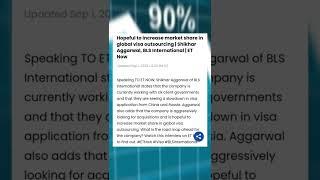International financial market | SGK
Описание
SGK English
The international financial market is a complex system that facilitates the exchange of currencies, stocks, bonds, and other financial instruments across countries. This market is composed of different financial institutions, including banks, investment firms, and other intermediaries that work together to enable the transfer of funds between buyers and sellers from different parts of the world.
In this article, we will discuss the different aspects of the international financial market, including its functions, participants, and the different instruments traded in the market. We will also explore the challenges faced by this market and the measures taken to address them.
Functions of the International Financial Market
The international financial market performs several crucial functions, which include the following:
Mobilization of funds: The market enables the transfer of funds from those who have surplus funds to those who need them. This function is essential for economic growth as it facilitates investment in different sectors of the economy.
Facilitation of trade: The market provides a platform for the exchange of different currencies, which is necessary for international trade. This function helps to eliminate the risk associated with currency fluctuations, making it easier for businesses to engage in cross-border transactions.
Risk management: The market provides different financial instruments, such as derivatives, which are used to hedge against risks such as currency fluctuations, interest rate changes, and commodity price movements.
Liquidity provision: The market provides liquidity to investors by providing an avenue for them to sell their financial instruments. This function is essential as it ensures that investors can easily convert their assets into cash when needed.
Participants in the International Financial Market
The international financial market is composed of different types of participants, which include the following:
Commercial banks: These institutions play a significant role in the market by providing financing to businesses and individuals. They also act as intermediaries, facilitating the transfer of funds between buyers and sellers.
Investment banks: These institutions provide various financial services, including underwriting, mergers and acquisitions, and securities trading.
Central banks: These institutions are responsible for setting monetary policy, regulating the money supply, and maintaining financial stability.
Hedge funds: These are private investment funds that pool funds from different investors and use them to invest in different financial instruments.
Instruments Traded in the International Financial Market
The international financial market is a vast and diverse market that includes different financial instruments, which include the following:
Currencies: The market provides a platform for the exchange of different currencies, which is necessary for international trade.
Stocks: These are securities that represent ownership in a company. Investors buy and sell these securities in the stock market.
Bonds: These are debt securities issued by companies or governments to raise capital. Investors buy and sell these securities in the bond market.
Derivatives: These are financial instruments whose value is derived from an underlying asset. Examples of derivatives include futures, options, and swaps.
Challenges Faced by the International Financial Market
The international financial market is not without its challenges. Some of the challenges faced by this market include the following:
Currency fluctuations: The market is subject to currency fluctuations, which can lead to losses for investors.
Regulatory challenges: The market is subject to different regulatory regimes, which can make it difficult for investors to navigate.
Cybersecurity threats: The market is vulnerable to cybersecurity threats, which can lead to losses for investors and financial institutions.
Measures Taken to Address Challenges in the International Financial Market
Several measures have been taken to address the challenges faced by the international financial market, which include the following:
Exchange rate management: Central banks use different tools to manage exchange rates and minimize the risk associated with currency fluctuations.
Regulatory harmonization: Different regulatory bodies are working to harmonize regulations
#internationalfinancialmarket, #finance, #banking, #investment, #currencyexchange, #stocks, #bonds, #derivatives, #commercialbanks, #investmentbanks, #centralbanks, #hedgefunds, #liquidity, #riskmanagement, #tradefacilitation, #economicgrowth, #monetarypolicy, #regulatorycompliance, #cybersecurity, #foreignexchange, #capitalmarkets, #emergingmarkets, #financialinstruments, #globaleconomy, #marketvolatility, #financialstability, #market#financialinstitutions, #assetmanagement,




















